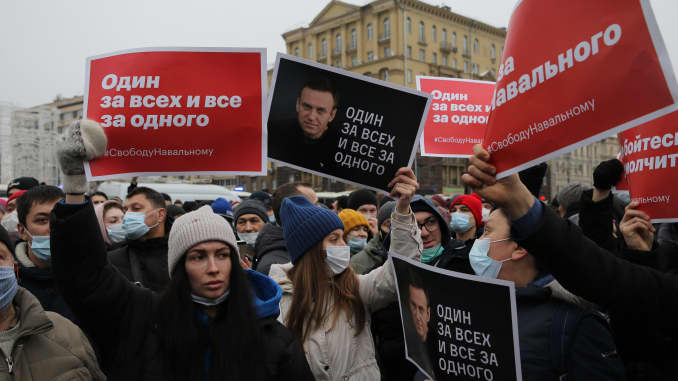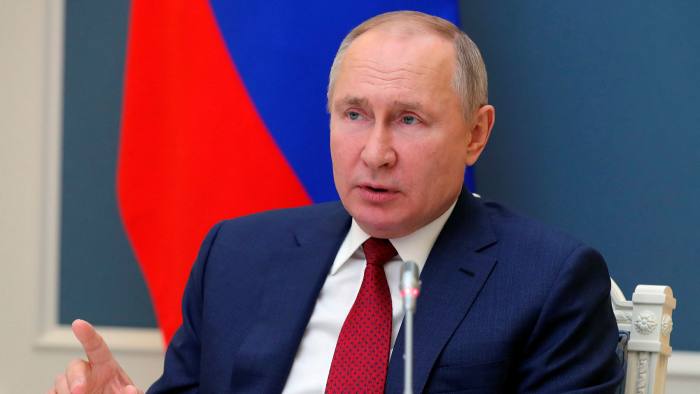US Social Media Giants Now Competing With Elected Govts, Russia’s Putin Tells WEF
LONDON– Russian President Vladimir Putin on Wednesday criticized the growing influence of US social media giants, saying their impact on society means they are now able to compete with elected governments.
Speaking at the World Economic Forum for the first time since 2009, Putin discussed a wide range of topics, including the coronavirus pandemic, his recent phone call with President Joe Biden and economic inequality worldwide.
“Digital giants have been playing an increasingly significant role in wider society,” Putin said via videoconference, according to a translation.
“We are now talking about economic giants, aren’t we? In certain areas, they are competing with states and their audience can include millions and millions of users,” he said, citing recent events in U.S. politics.
“Here is the question, how well does this monopolism correlate with the public interest?”
Putin did not specifically name any technology companies.
More recently, Alphabet’s Google has said it will block its search engine to users in Australia if the government moves ahead with plans to introduce a new code that would force it and Facebook to pay media companies for the right to use their content.
The dispute is another in growing attempts to regulate Big Tech.
Fraught relations between Russia and the U.S. have deteriorated following a massive cyberattack targeting federal agencies, interference in U.S. elections, and the arrest of Navalny.
In April 2019, Special counsel Robert Mueller’s report on Russian interference found that Russia’s Internet Research Agency reached millions of U.S. users on social media ahead of the 2016 presidential election and used its false accounts to influence voters and even drive them to manufactured rallies.
Navalny protests
Putin’s comments at the Davos Agenda summit come as Western government officials weigh the possibility of new sanctions against Moscow over the arrest of Navalny.
In a defiant challenge to Putin, mass demonstrations in more than 100 cities over the weekend saw tens of thousands of people protest against the detention of the opposition leader.
Allies of Navalny have called for more protests in the coming days to keep up the pressure on the Kremlin.

Foreign ministers from the U.S., U.K., Canada, France, Germany, Italy and Japan, as well as the high representative of the European Union, have condemned the “politically motivated” arrest of Navalny.
The group also called for Navalny’s immediate and unconditional release and expressed “deep concern by the detainment of thousands of protesters and journalists.”
In response to calls for Navalny’s urgent release from detention, the Kremlin has previously said that Navalny’s case has received “artificial” resonance in the West.
Biden call
Biden spoke with Putin on Tuesday for the first time since the former’s inauguration earlier this month. He raised a number of issues with the Russian president, including the poisoning of Navalny.
Biden warned Putin that the U.S. “will act firmly in defense of its national interests in response to actions by Russia that harm us or our allies,” according to a statement from the White House.
Navalny, widely regarded as the most prominent and determined critic of Putin, was arrested by Russian authorities on Jan. 17 as his flight from Berlin landed in a Moscow airport.
He was subsequently ordered to be detained for 30 days through to Feb. 15 and faces the prospect of years in prison.
It was the first time Navalny had returned to the country since he was poisoned last summer.
In his address, Putin also warned that the coronavirus pandemic has exacerbated preexisting global problems and imbalances, and that these could deteriorate to a point where there is a fight of “all against all.”
SOURCE: CNBC

